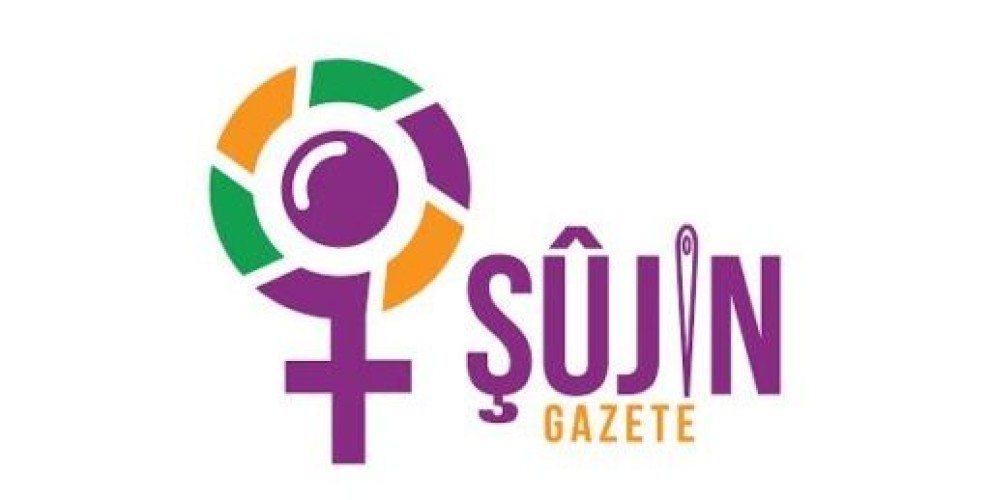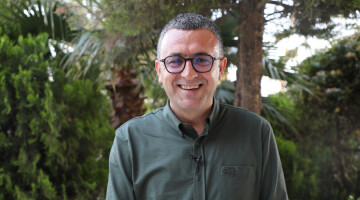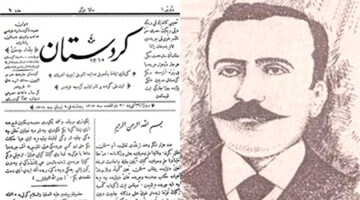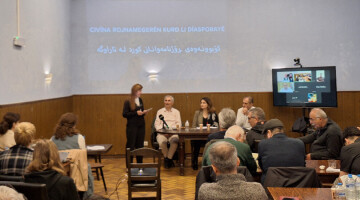The women’s journalism website Şûjin, with their motto “A packing needle [“şûjin”] against the masculine language of the mainstream media”, has been shut down by the government of Turkey with a statutory decree targeting the free press.
Şûjin released the following statement regarding the closing down of their media outlet:
“Gazete Şûjin began publication in December 2016 with the slogan “a packing needle in the language of the media.” With statutory decree No. 693, issued by the state of emergency government in the morning hours of August 25, 2017, Şûjin Gazette has been closed.
In a world of those who say “shut up, as a woman,” we, with our “packing needle journalism,” have been the voice of women in the media from the day of our founding. Our online gazette does not recognize the borders of “acceptable womanhood” drawn by the state, the media, or anyone else. We have begun a practice of self-defense in woman-focused journalism with our cry of “the personal is political.” We have continued to expose the patriarchy and the masculine press that attack women’s bodies and lives.
For this reason, there have been many direct threats issued to our online gazette and friends. There have been repeated cyber attacks on our website, one of the areas in which we release news. Especially in cases where there is an attempt to block the formation of public opinion on an issue and where the people’s right to the news has been restricted, our online gazette has delivered the first, most reliable news reports. Today, the powers who have been stabbed by its packing needle want to silence it.
Şûjin is everywhere
In Batman, in Çınar, in the Ensar Foundation (where teachers sexually abused students), in schools, at home, in the streets, or on the metro, in every place private and public, Şûjin has been the voice of women and children facing sexual abuse and sexual assault. While some think they can confine women’s will and representation within four walls, Şûjin has been the voice of this will and representation (elected women politicians imprisoned or removed from office); Şûjin has been the voice of the women who are murdered every day, the majority by the men closest to them.
In Sur, in Cizre, in Hasankeyf, in Nusaybin
In Sur, in Cizre, in Hasankeyf, in Nusaybin, Şûjin has been the voice of the social memory and the citizens whose homes and the places where they live have been demolished. In Dersim, in Lice, in Mardin, Şûjin has been the voice of the burned forests and the living beings and life facing extermination.
In Şapatan and Xerabê Bava, Şûjin has been the voice of citizens who have been tortured; Şûjin has been the voice of Muhammet, Furkan, Pakize Hazar, Kemal Kurkut, and dozens of other citizens crushed by tanks and murdered with bullets.
From the first moment, 290 days ago, when Nuriye Gülmen stepped out onto Yüksel Avenue saying “I want my job back,” until today, Şûjin has been the voice of working people removed from their jobs who resist and go on hunger strike on Yüksel Avenue, in Kalkedon, and in dozens of other places.
In the prisons of Sincan, Şakran, Van, Tarsus, and dozens of other places, Şûjin has been the voice of prisoners who are tortured and who put their bodies to bed hungry (prisoners who launch hunger strikes against rights violations); Şûjin has been the voice of exploited and invisiblized workers; and Şûjin has been the voice of animals and nature as they face murder, exploitation, and attacks on the places where they live.
We will not be silent!
With the accumulation of knowledge, the beliefs, and the stubbornness left to us by women who wanted to carve in stone women’s writing, women’s words, and women’s journalism—women like Rosa Luxemburg, Gurbetelli Ersöz, Emma Goldman, Virginia Woolf, Ayfer Serçe, Ulrike Meinhof, and Deniz Fırat—we once again repeat the words of the women who came before us: “we will continue to write, without thinking what men will decree.”
The free press will not be silent; women’s journalism will not be silent.
We were, we are, we will always be here!
As a packing needle to the language of the media,
Gazete Şûjin”















